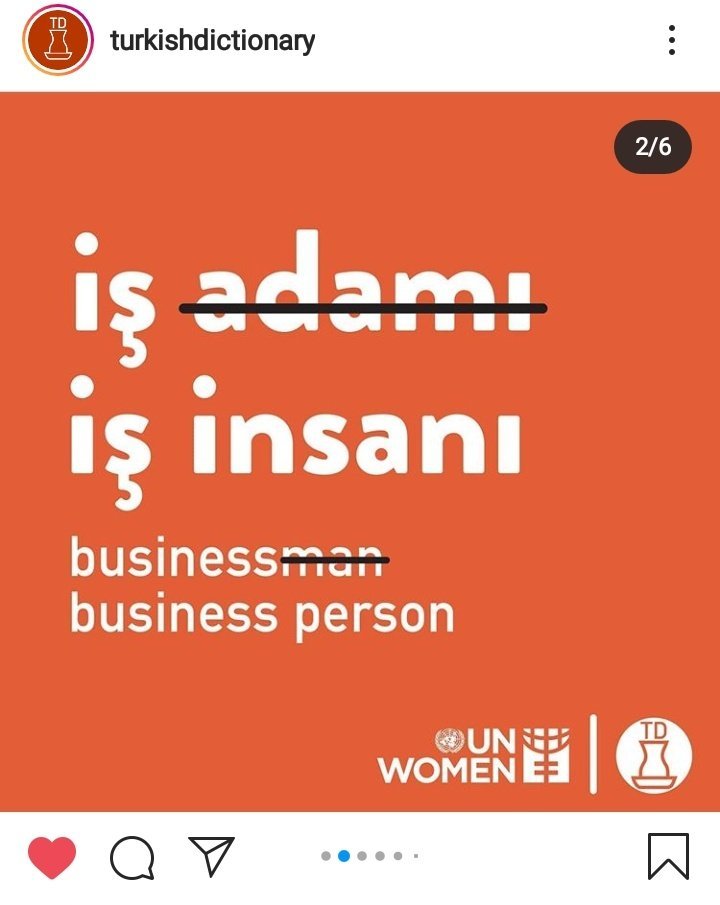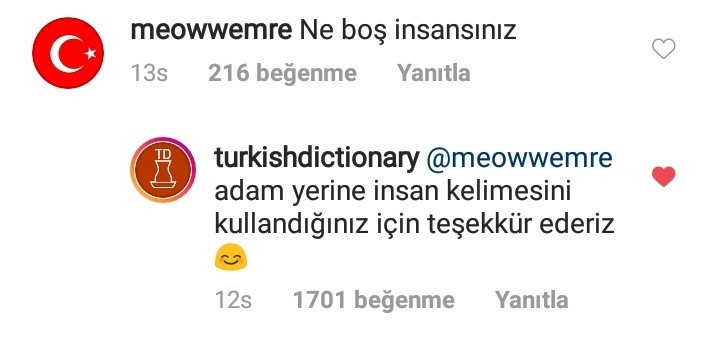Efsaneyi hatırlayalım xndndndbd https://t.co/zi6BvNfZvD
turkishdictionary iş adamı iş insanı businessman business person a UN WOMEN E 谐 ⠀ 2/6 TD C meowwemre Ne boş insansınız 13s 216 beğenme Yanıtla Ï turkishdictionary @meowwemre adam yerine insan kelimesini kullandığınız için teşekkür ederiz 12s 1701 beğenme Yanıtla
Kaynak
The photo is of a Turkish dictionary entry for the English word "businessman." The dictionary entry shows two Turkish words, "iş adamı" and "iş insanı," both of which mean "businessman." However, the word "adamı" is crossed out, which suggests that it is no longer the preferred translation for "businessman." The caption at the bottom of the image reinforces this by stating that the correct translation is "iş insanı." This is a humorous take on the evolving nature of language. The word "adamı" is a literal translation of "businessman" and was probably the preferred term in the past. However, as Turkish society has become more aware of gender equality, "iş insanı" (literally "business person") is now considered a more inclusive and appropriate term. By crossing out "adamı" and emphasizing "iş insanı," the image playfully highlights this shift in language usage and underscores the importance of gender-inclusive language.
Resimde, "meowwemre" kullanıcı adı ile birinin "Ne boş insansınız" yazdığı bir yorum ve "turkishdictionary" kullanıcı adının, "adam yerine insan kelimesini kullandığınız için teşekkür ederiz" diye yanıtladığı bir ekran görüntüsü bulunuyor. Bu yorumların arkasındaki espri ise, Türk dilinde "adam" kelimesinin hem erkek insanı hem de iyi bir insanı ifade eden bir anlamı olmasıdır. "meowwemre" kullanıcısının yorumu "adam" kelimesini "insan" yerine kullanarak, dil bilgisine dikkat etmediğini ima ederken, "turkishdictionary" kullanıcı adı da bu noktayı vurgulayarak espriyi daha da güçlendiriyor.


Henüz bişi yazılmamış